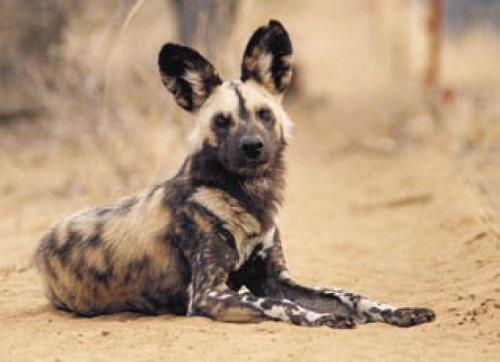Robin Lines
Other projects
19 Jan 2002
Conservation of African Wild Dogs in Namibia: A Research and Rural Development Project to Reduce Conflict with Livestock Farmers in the Otjozondjupa and Omaheke Regions
The Wild Dog Project aims to promote, in the long-term, a viable, free-ranging and secure population of African wild dogs, as a component of wildlife based land-use through sustainable management practices, for the benefit of all Namibians.

The Wild Dog Project has its origins in the communal farming communities in N.E. Namibia. This area is part of the central Kalahari system, a semi-arid savanna with no perennial surface water. Very large areas are uninhabited or with low population density. This area supports a critically important and unfragmented population of 300-600 African wild dogs from perhaps only 3000 remaining in the wild. The African wild dog is the most endangered large mammal in both Southern Africa and Namibia. Only 6-7 populations contain >100 animals.
Historical research and formal conservation initiatives in arid and semi-arid ecosystems outside formally protected areas is very limited in contrast to the huge areas these habitats represent in Africa. But with the development of Namibia’s National Community-Based Natural Resource Management Programme (CBNRM) opportunities abound to conduct applied research and associated conservation outreach, assisting with the sustainable utilisation of natural resources. Within this context the endangered African wild dog is considered both a flagship and umbrella species.
The Wild Dog Project aims to link social and ecological approaches to conservation, working closely with people, looking at ways of reducing conflict, trying to find ways of optimising benefits from African wild dogs through tourism, while understanding their ecology and movement patterns within the zone of actual and potential conflict.
This project has been strongly requested by communal communities in Eastern Namibia. Human-wild dog conflict is amongst their top priority issues. Project support is endorsed by the emerging and registered conservancies in Otjozondjupa and will be conducted in close collaboration with, in support of, and supported by the national CBNRM programme. The communal conservancies don’t only see African wild dogs as a problem, but an opportunity to improve people’s livelihoods.
Objectives:
Monitor human-wild dog conflict in farming communities;
Implement outreach initiatives reducing human-wild dog conflict;
Collect baseline data on other factors affecting African wild dog conservation;
Develop & implement tourism initiatives for African wild dogs;
Promote a Regional and National Management Plan.